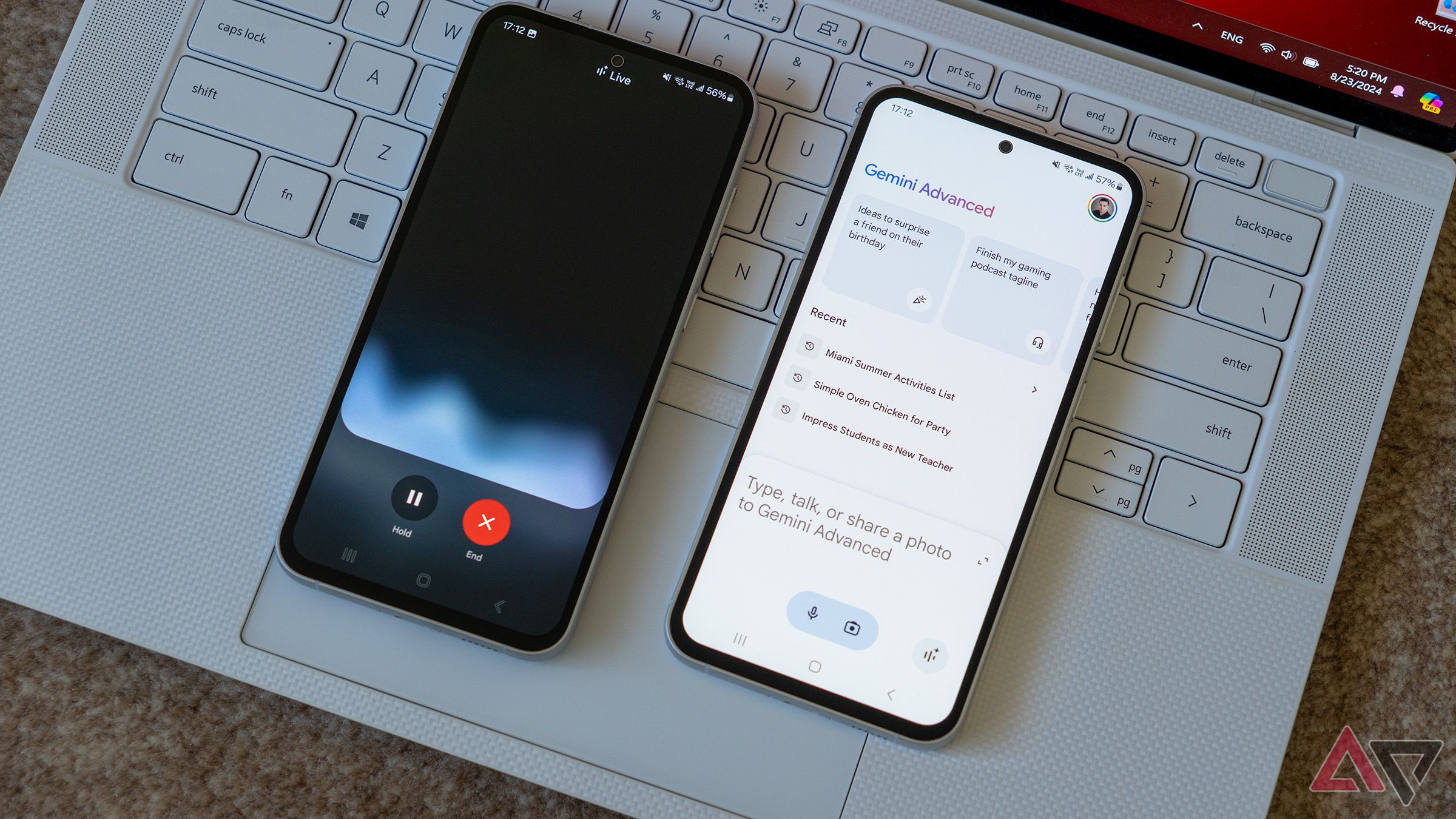Physical Address
304 North Cardinal St.
Dorchester Center, MA 02124
Physical Address
304 North Cardinal St.
Dorchester Center, MA 02124

We’ll remember 2024 for AI and LLMs (large language models). While ChatGPT remains a major player, and others such as Meta’s Llama and Claude evolve, nothing like Google Gemini exists. There have been bumps in the road, especially with Gemini’s Imagen image-generating system. However, Google’s integration across its Workspace apps has made it an indispensable productivity tool, not to mention the new capabilities it brings to Google Assistant and smart home devices.

Related
Google Gemini is here, with a whole new approach to multimodal AI
Gemini rebranded the capabilities of the former Bard and Duet AIs. Gemini rolled out across platforms with a dedicated mobile app for Android, integration with the Google app on iOS, and staged integration into Google Workspace. The company also introduced NotebookLM, a novel and useful tool that functions like an intelligent personal digital notebook.
Google focused on deepening the integration of AI into its existing products. Android 15, for instance, saw AI optimize core OS functions, leading to improved battery life and performance. Moreover, the company continued to refine its AI-powered camera features on Pixel phones, making computational photography a hot trend to watch in 2025.
Source: Joshuah Sharpe / Android Police
Google teased Gemini’s potential to redefine the boundaries of human-machine interaction at its I/O event in May 2023. When it launched, it didn’t disappoint. Gemini seamlessly integrates text, code, and images. These features immediately made it an efficiency-enhancing tool for learning and research, generating creative content with ever-improving AI collaboration, and getting rote tasks done with less effort. Its expansive context window, capable of synthesizing more information than any competitor, cemented its status as a leading AI.
Gemini emerged as a viable ChatGPT alternative in 2024. The platform’s advanced reasoning skills, allowing for more nuanced and human-like conversations, set a new benchmark. As a Gemini Advanced user, I typically receive useful and accurate responses that improve in their understanding of context and intent. My only gripe is with the platform’s troubled Imagen image generator.

Related
What can Gemini Advanced do better and is it worth the price?
Despite Gemini’s groundbreaking advancements, its image generation component, Imagen, got off to a rocky start. Google suspended its ability to generate images of humans in February. It came back online a few months later as a middling solution. Early iterations of Imagen were plagued by inaccuracies, producing images that ranged from misleading to bizarre, and the company was accused of manifesting cultural biases.
While Google addressed these issues, the damage was done. The initial negative perception lingered, and with subsequent updates, Imagen failed to impress. What was initially touted as a revolutionary image-generation tool became the most underwhelming component of Gemini.
Google quietly unveiled another important AI innovation in 2024: NotebookLM. This experimental project took a different approach, focusing on personalized AI experiences tailored to individual needs. NotebookLM trains its AI on the data you provide and organizes your links, images, videos, notes, and documents into a simple notebook-like interface.
NotebookLM is faster than a human research assistant. In my experience, NotebookLM saves a lot of time and effort with rote research, information synthesis, and productivity tasks. It’s equally adept at illuminating the big picture and managing minute details.
NotebookLM summarizes meeting notes, generates outlines, and helps you study by creating quizzes from your documents. Its Audio Overviews feature allows it to create dynamic, natural-sounding virtual podcasts from your sources. By shifting the focus from a general-purpose AI to a personalized experience, Gemini will expand what AI means and its impact in 2025.
With the release of Android 15, Google began driving AI into its mobile operating system. Android 15 leverages on-device AI to optimize essential functions, improving battery life and performance. This includes intelligent resource allocation that adapts to individual app usage patterns, dynamic settings adjustments, and efficient management of background processes.
AI is transforming the user experience in Android 15. Features like predictive app launching anticipate user needs, smart text selection streamlines interactions, and personalized recommendations within system settings offer tailored guidance. These advancements showcase Google’s all-in approach to AI and how far we’ve come in one year.

Related
Now available on Pixel 6 and newer
We saw exciting advancements in mobile photography, primarily driven by AI processing. Google’s Pixel phones, known for their camera quality, elevated their capabilities with AI-powered features. The Magic Eraser, introduced in 2021, became more precise in removing unwanted objects from photos. AI enhanced zoom capabilities by filling in details and reducing noise. Automatic editing suggestions offered new options for enhancing images with a single tap.
This surge in AI-driven camera technology isn’t limited to Google. Samsung made strides with its advanced scene recognition and image optimization tools. The competition between these manufacturers and others, like Apple, fueled rapid innovation. As a result, smartphone users can now capture, edit, and share better photos than before without using a computer-based image editor.
It was a big year for Google’s AI endeavors, marked by innovative products and deep integration of AI across its vast ecosystem. Gemini staked its LLM turf, boasting an expansive context window (now 2 million tokens in Gemini Pro) and impressive multimodal capabilities. This positioned Google as a leader in the rapidly evolving AI landscape, surpassing ChatGPT by certain measures.
However, 2024 highlighted AI’s complexities and potential pitfalls. Gemini’s Imagen faced setbacks due to inaccuracies and biases. Meanwhile, Google’s advancements in personalized AI with NotebookLM, on-device AI, and AI-powered photography showcased the potential for artificial intelligence to simplify and enhance our lives.
Responsible development must remain a foremost concern as Google continues its AI initiatives. Google’s missteps have been forgivable gaffes, but its progress has been remarkable and is accelerating. Still, we must remain vigilant for bad actors who use AI for nefarious purposes. Deepfakes, AI robocalls, and other threats must be kept at bay by combining human vigilance and technological intervention from industry leaders such as Google.